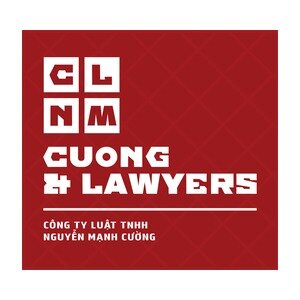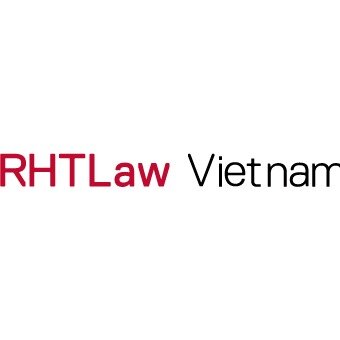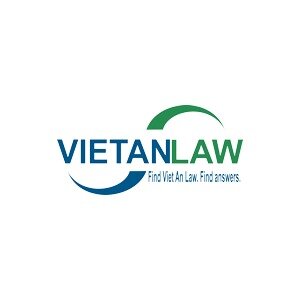Best Oil, Gas & Energy Lawyers in Vietnam
Share your needs with us, get contacted by law firms.
Free. Takes 2 min.
Or refine your search by selecting a city:
List of the best lawyers in Vietnam
About Oil, Gas & Energy Law in Vietnam
The oil, gas, and energy sector in Vietnam plays a critical role in the country's economy, contributing significantly to its GDP and energy security. Vietnam is known for its rich offshore oil and gas reserves, which have attracted significant foreign investments. Besides oil and gas, Vietnam is expanding its focus on renewable energy sources, such as wind, solar, and hydropower to meet its growing energy demand sustainably. The legal landscape in this sector pertains to a myriad of regulations and policies that govern exploration, production, distribution, and environmental protection.
Why You May Need a Lawyer
Engaging a lawyer with expertise in the oil, gas, and energy sector in Vietnam can be beneficial in several situations:
- Contractual Agreements: Drafting and reviewing contracts for exploration, production, joint ventures, and supply can be complex and requires legal expertise to ensure compliance and protect interests.
- Regulatory Compliance: Navigating the extensive regulations governing the sector, including obtaining necessary licenses and permits.
- Dispute Resolution: Handling disputes that may arise from contractual disagreements or regulatory breaches.
- Investment and M&A: Providing legal advice on investments and mergers and acquisitions in the energy sector.
- Environmental Law: Ensuring compliance with environmental regulations to avoid penalties and ensure sustainable practices.
Local Laws Overview
Vietnam's legal framework for the oil, gas, and energy sector is comprehensive, covering various aspects like licensing, investment, partnership with foreign entities, and environmental protection. Key aspects include:
- Petroleum Law: Governs the exploration and exploitation of oil and gas resources.
- Electricity Law: Regulates power production, transmission, and distribution, encompassing both traditional and renewable energy sources.
- Environmental Protection Law: Enforces standards for environmental conservation and pollution control in energy projects.
- Investment Law: Provides guidelines for both domestic and foreign investments in the energy sector, facilitating joint ventures and project financing.
Frequently Asked Questions
What licenses are required for oil and gas exploration in Vietnam?
Companies must obtain several licenses, including exploration licenses and environmental permits, from the Ministry of Industry and Trade (MOIT) and other governmental bodies.
Are there restrictions on foreign investment in Vietnam's energy sector?
While Vietnam encourages foreign investment, there are specific sectors where foreign ownership may be restricted, and joint ventures with local partners are often preferred.
How does Vietnam support renewable energy development?
Vietnam has introduced incentives such as tax benefits, feed-in tariffs, and favorable policies to encourage the development of renewable energy projects like wind and solar.
What is the process for resolving energy-related disputes?
Disputes can be resolved through negotiation, arbitration, or court proceedings, with arbitration being a commonly preferred method.
How does Vietnam regulate environmental protection in the energy sector?
Vietnam has strict regulations for environmental impact assessments and mandates adherence to pollution control standards, enforced by the Ministry of Natural Resources and Environment (MONRE).
Can foreign companies participate in Vietnam's bidding for oil and gas blocks?
Yes, foreign companies can participate through bidding rounds organized by the Vietnam National Oil and Gas Group (PetroVietnam).
What are the tax obligations for energy companies in Vietnam?
Energy companies must adhere to corporate income tax, value-added tax, and export tax, among others, with specific incentives available for certain projects.
What is required to operate an energy supply company in Vietnam?
Obtaining an electricity operation license from the MOIT and complying with safety and technical standards are prerequisites for operation.
How does the government address energy security issues?
The Vietnamese government prioritizes diversification of energy sources, infrastructure investments, and regional cooperation to enhance energy security.
What is the role of PetroVietnam?
PetroVietnam is the state-owned corporation responsible for strategic management and development in the oil and gas sector, managing exploration, refining, and distribution operations.
Additional Resources
For those seeking more information or assistance regarding Oil, Gas & Energy in Vietnam, the following resources can be helpful:
- Vietnam National Oil and Gas Group (PetroVietnam): The state-owned enterprise responsible for oil and gas activities.
- Ministry of Industry and Trade (MOIT): Governs and regulates exploration activities and energy supply.
- Ministry of Natural Resources and Environment (MONRE): Handles environmental regulations and impact assessments.
- Vietnam Energy Association: Provides industry news and regulations insights.
- International Renewable Energy Agency (IRENA): Offers global guidelines and resources on renewable energy.
Next Steps
If you require legal assistance in the oil, gas, and energy sector in Vietnam, consider taking the following steps:
- Identify your specific legal needs and objectives.
- Research and select a legal firm or lawyer with specialized expertise in Vietnam’s energy laws.
- Gather all relevant documents and information to facilitate an informed legal consultation.
- Schedule a consultation to discuss your case and develop a strategy that aligns with your goals.
- Consider joining industry-specific associations for networking and resources.
Engaging with professionals knowledgeable about Vietnam’s oil, gas, and energy landscape will ensure you navigate the legal complexities effectively.
Lawzana helps you find the best lawyers and law firms in Vietnam through a curated and pre-screened list of qualified legal professionals. Our platform offers rankings and detailed profiles of attorneys and law firms, allowing you to compare based on practice areas, including Oil, Gas & Energy, experience, and client feedback.
Each profile includes a description of the firm's areas of practice, client reviews, team members and partners, year of establishment, spoken languages, office locations, contact information, social media presence, and any published articles or resources. Most firms on our platform speak English and are experienced in both local and international legal matters.
Get a quote from top-rated law firms in Vietnam — quickly, securely, and without unnecessary hassle.
Disclaimer:
The information provided on this page is for general informational purposes only and does not constitute legal advice. While we strive to ensure the accuracy and relevance of the content, legal information may change over time, and interpretations of the law can vary. You should always consult with a qualified legal professional for advice specific to your situation.
We disclaim all liability for actions taken or not taken based on the content of this page. If you believe any information is incorrect or outdated, please contact us, and we will review and update it where appropriate.
Browse oil, gas & energy law firms by city in Vietnam
Refine your search by selecting a city.

















